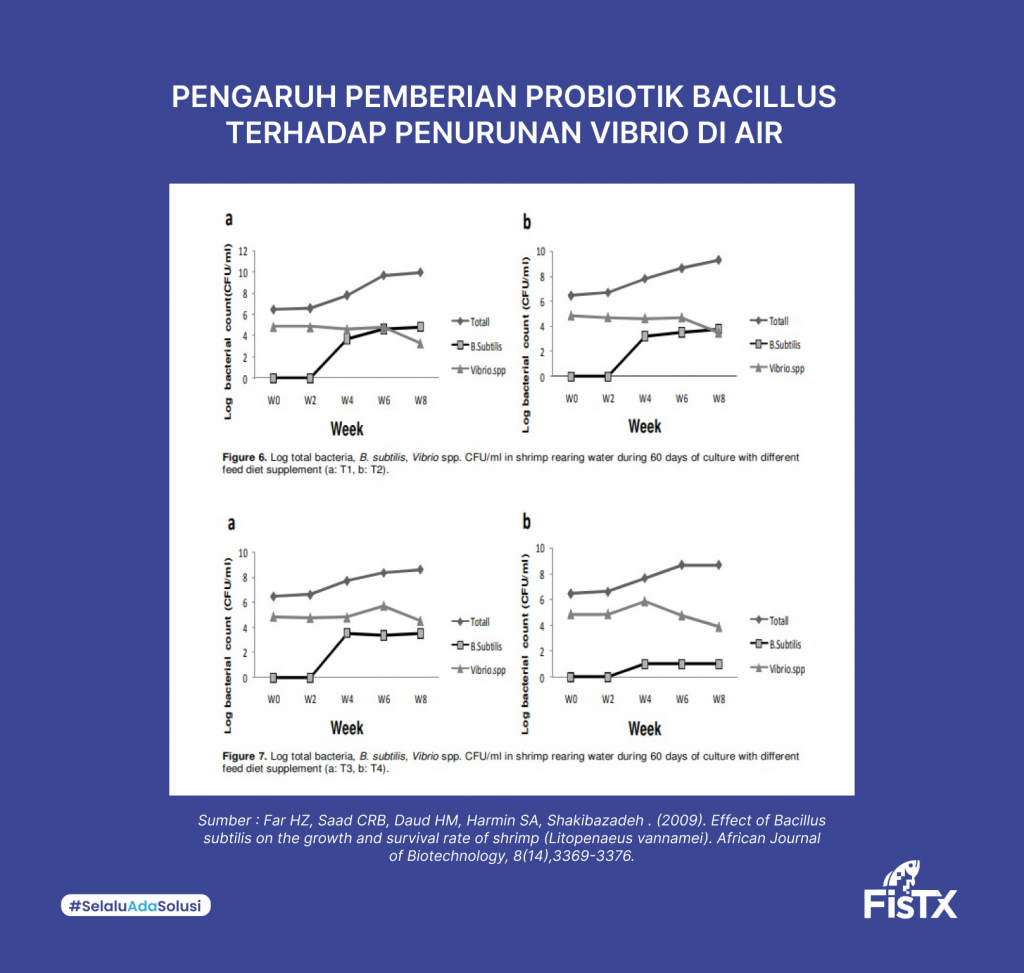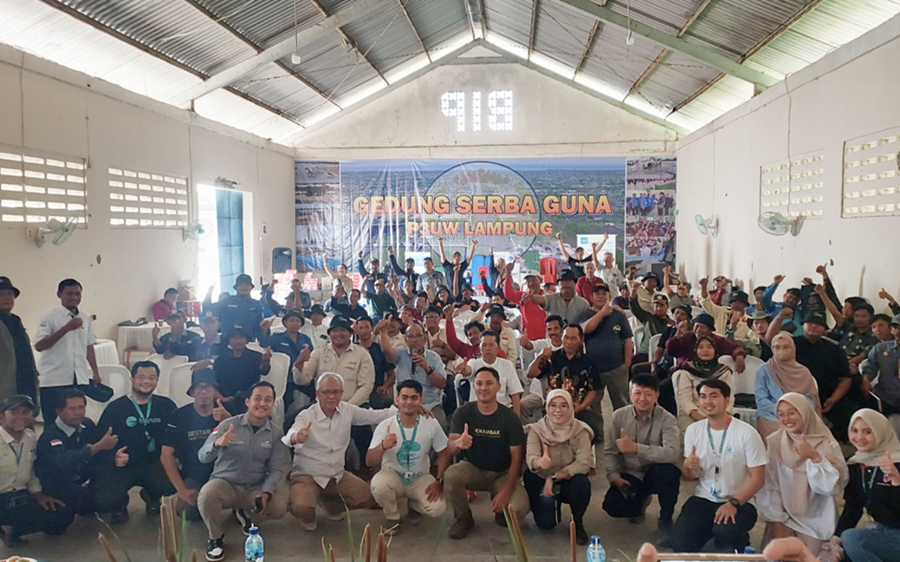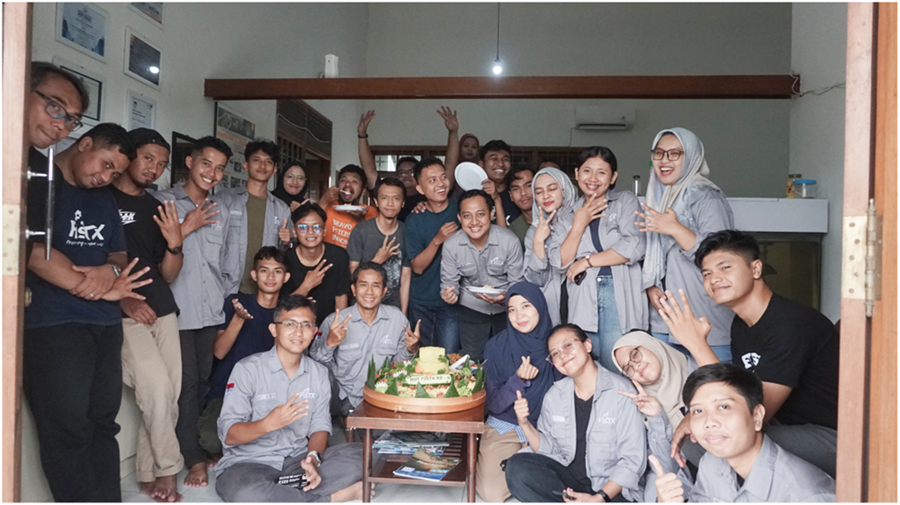
What is the Optimal Bacterial Density as Vannamei Shrimp Probiotics?
Shrimp cultivation has become a crucial industry in meeting global demand for fisheries products. In efforts to improve shrimp productivity and health, farmers are increasingly adopting microbe-based approaches, particularly the use of probiotic bacteria. One type of bacteria that is receiving increasing attention is Bacillus sp. This bacterium is considered a potential probiotic in enhancing shrimp farming performance. The concept of probiotics involves providing beneficial microorganisms to improve shrimp health, increase shrimp resistance to diseases, enhance water quality, and minimize the use of chemicals in ponds.
Benefits of Bacillus Bacteria in Shrimp Farming
Its main advantage lies in its ability to metabolize organic waste in ponds, thereby reducing the risk of high levels of ammonia and nitrite that can harm shrimp. Additionally, Bacillus sp. is also known to inhibit the growth of pathogenic bacteria that can cause diseases in shrimp. Using the right concentration of this probiotic bacteria can bring maximum benefits in improving shrimp health and maintaining a balanced pond ecosystem. With a deeper understanding of the role of Bacillus sp. as a probiotic, shrimp farmers can develop more effective strategies to enhance their farming yields sustainably.

Does Higher Bacterial Density Lead to Better Water Quality?
It is not always true that higher bacterial density directly correlates with automatic improvement in water quality. The relationship between bacterial density and water quality can be complex and highly influenced by various factors. Increasing healthy bacterial density can reduce the levels of ammonia and nitrite in water, which are crucial parameters for shrimp health. However, excessively high or uncontrolled bacterial density can also cause issues.
Excessive bacterial density can lead to competition among microorganisms and can reduce oxygen availability in water, resulting in decreased water quality. In a study by Kewcharoen & Srisapoome 2019, it is explained that the optimum density of Bacillus sp. as a probiotic is 10^9 CFU/ml. Therefore, managing probiotic bacteria or other bacteria in shrimp farming or aquaculture systems needs to be done carefully and in line with principles of sustainable pond management.

Amidst the challenges of diseases and harvest failures in vannamei shrimp farming, shrimp farmers are required to continually monitor the farming systems they operate. If you have issues with shrimp farming, consult with FisTx for FREE. Contact us for more information!
Read More Articles

FisTx Shares Innovation at AgResults Indonesia Aquaculture Challenge Project 2024
08 October 2024

Nano Particle Technology Disinfectant for Shrimp, More Effective and Safe in Combating Diseases
26 September 2023

FisTx 4th Anniversary: 4 Years of Innovation Presents Solutions for Indonesian Fish Farmers
09 November 2024